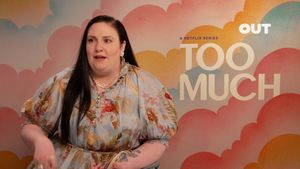A genetic test
marketed by Myriad Genetics that screens for the BRCA1 and
BRCA2 genetic mutations that are linked with increased risk
of breast cancer fails to identify the mutations in
about 12% of women who have been diagnosed with breast
cancer, have a family history of the disease or of
ovarian cancer, or who have previously tested negative for
the mutations, The New York Times reports. The
test is the only one of its kind on the U.S. market and
costs about $3,000. About 1 in 400 people are believed
to carry the genetic mutations, which research has
shown boosts the chances of developing breast and
ovarian cancers.
But now a study
in the March 22 issue of the Journal of the American
Medical Association, conducted by researchers
at the University of Washington, shows that the test
returns a high number of false-negative results. The
researchers examined 297 women and three men who had
previously tested negative for the genetic mutations
and who either had been diagnosed with breast cancer
or had at least four family members previously diagnosed
with breast or ovarian cancer. Using more advance
testing methods not commercially available in the
United States, the researchers found that 35 of the
study subjects--12%--carried either the BRCA1
mutation, the BRCA2 mutation, or both.
Some cancer
experts say they have been aware that the Myriad test may
miss identifying some genetic mutations but say this is the
first study to determine the actual false-negative
rate. They also worry that Myriad's monopoly of
the U.S. testing market may be hindering research into
better BRCA mutation diagnostic tests.
"What
[this study] really points to is that if women with a strong
family history have been tested and have been told we
didn't find a gene mutation, we shouldn't stop there,"
Julie Gralow, an oncologist at the Seattle Cancer Care
Alliance, told the Seattle Post-Intelligencer.
"We need an open and competitive marketplace for the
development of genetic testing."
Gregory
Critchfield, president of Myriad's genetic testing
division, told The New York Times the company
continues to fund research and development of better
BRCA tests, adding that Myriad hopes to have a
more sensitive test available on the market later this
year. (The Advocate)








































































